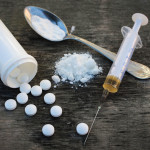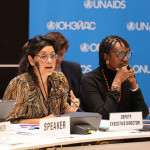UNAIDS is calling for swift action to prevent the spread of HIV in Haiti following the January 12 earthquake, Voice of America News reports. The United Nations’ HIV/AIDS agency warns in a new study that chaotic conditions and overcrowded camps for displaced Haitian quake survivors might increase the country’s already-high HIV prevalence.
The earthquake marks the first significant natural disaster in a country with a high HIV/AIDS prevalence, said Tim Martineau, the UNAIDS director of technical and country support. “We estimate that there were 120,000 people living with HIV in Haiti,” he said. “At the end of last year, there were roughly about 19,000 people receiving treatment with a significant curve. An important concern obviously is for us to maintain treatment for that population group. But, we also anticipate that that figure will rise to about 32,000 this year. So, there is a need to maintain services, but also to scale them up.”
According to the UNAIDS report, the worst earthquake damage occurred in three areas where 60 percent of Haiti’s HIV-positive population lives. Martineau added that an estimated 40 percent of HIV-positive Haitians are no longer accessing the networks and civil society groups that provide treatment.
“We have a concern around the displaced population groups,” Martineau said. “The risk of violence, and particularly sexual violence and violence against women, poses a great problem and challenge in terms of the risk of HIV transmission. And, there is also roughly 1 million people living in camps. And, with the high HIV prevalence, the risk of the spread of HIV is quite substantial.”
While UNAIDS had requested $130 million for HIV prevention and treatment programs in Haiti before the earthquake, Martineau estimated that twice that amount will be needed this year.
Advertisement
Advertisement
Advertisement






Comments
Comments